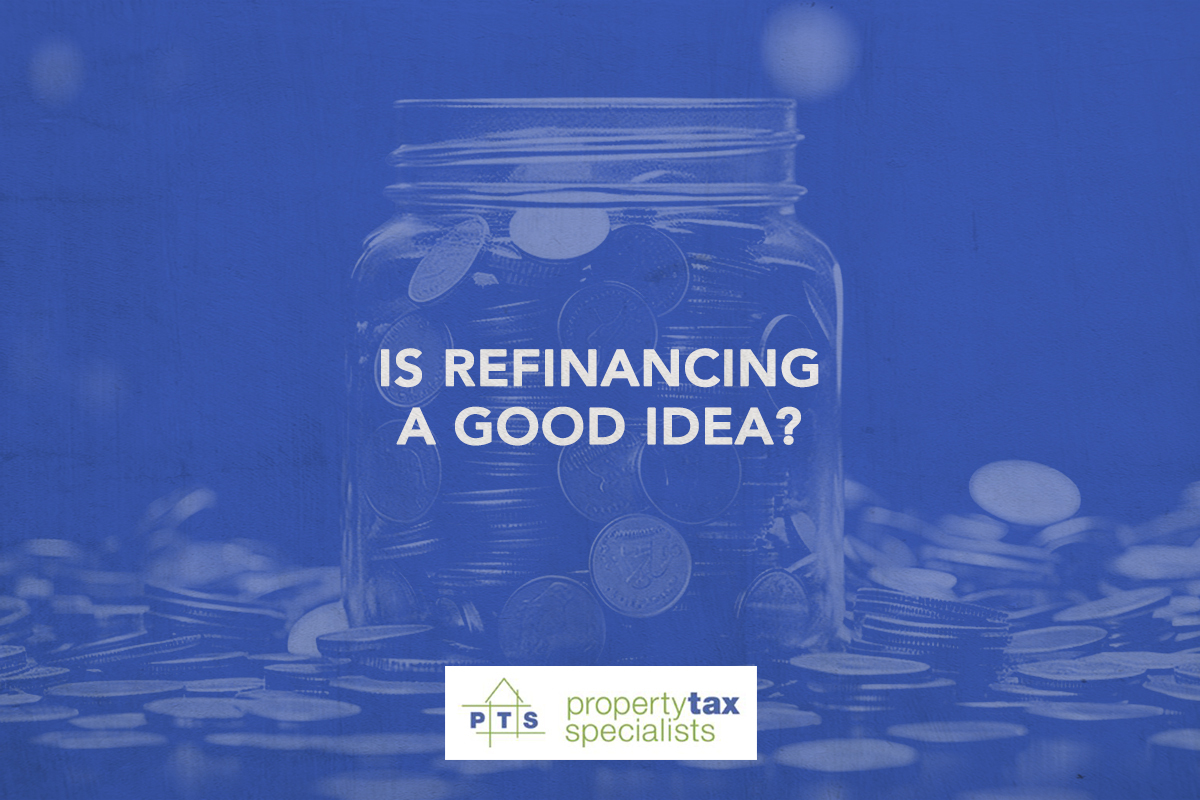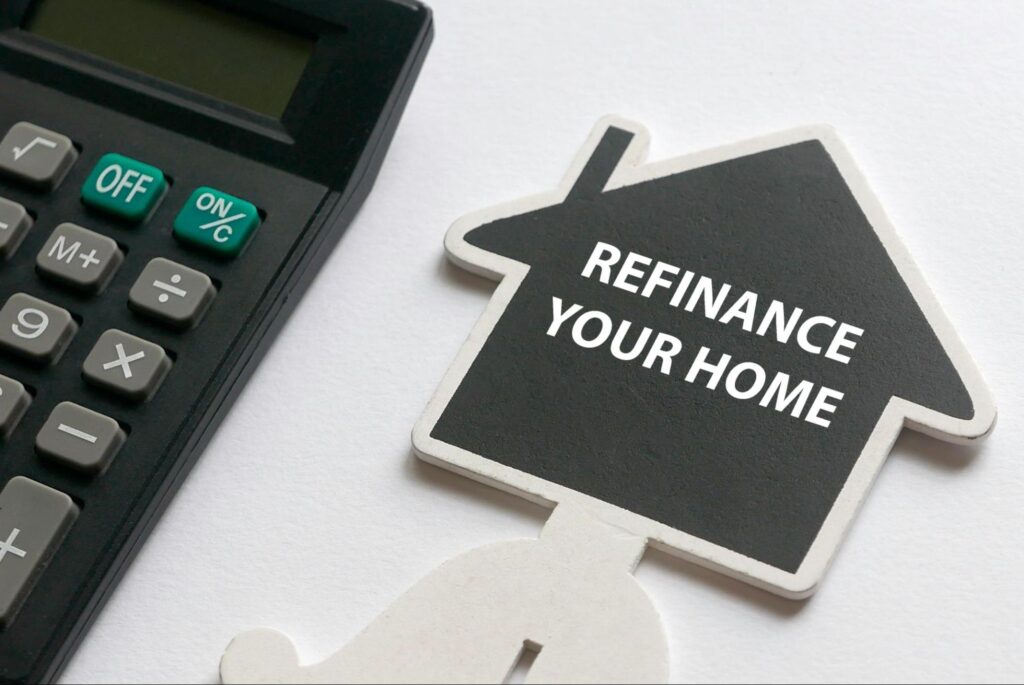The Great Debate: Is Refinancing a Good Idea?
Refinancing your mortgage can seem like a lucrative option, especially with the allure of lower interest rates and potential savings. But the question “Is refinancing a good idea?” might not have a straightforward answer.
However, the process is not without its pitfalls, and the decision to refinance is a substantial financial move that requires careful consideration and a deep understanding of the advantages and potential drawbacks.
Deciphering the Concept of Refinancing
Mortgage refinancing is a financial strategy that involves replacing your existing mortgage with a new one that typically offers more favourable terms or interest rates. This could be with your current lender or a new one.
The refinancing process involves paying off the existing loan with funds from the new loan, which is then secured against your property.
So, essentially, the basic premise of refinancing is to secure a better mortgage deal that aligns with your current financial status and future goals.
Why Do Homeowners Opt for Refinancing?
Refinancing a mortgage can present several advantages, which can make it an enticing strategy for homeowners.
Some common motivations for refinancing include:
-
- Lower monthly payment: This is perhaps the most common reason homeowners decide to refinance their loans. A lower interest rate can lead to significant savings over the life of the home loan and could reduce your monthly mortgage payment.
- Shortening the Loan Term: If your financial situation improves, you might decide to refinance to shorten the term of your loan. This could mean higher monthly repayments, but you’ll pay off your loan faster and save money on interest.
- Switching Loan Types: Some homeowners might decide to refinance to switch from a variable interest rate to a fixed-rate mortgage, or vice versa, depending on market conditions and their financial situation.
- Equity Access: Refinancing can provide access to your home’s equity, which can be used to finance major expenses such as home improvements, education fees, or even a new property.
- Cash-out refinance: Homeowners can refinance their current loan for more than they currently owe and then take the difference in cash.
- Debt Consolidation: If you have multiple high-interest debt accounts like a personal loan and credit card debt, refinancing can allow you to consolidate these into your mortgage, which usually has a lower interest rate.
The Right Timing: When Should You Consider Refinancing?
Deciding when to refinance a mortgage is a key aspect of the process. Various factors play a role in timing this decision correctly:
- Interest Rates Drop: A drop in interest rates is often a trigger for homeowners to consider refinancing. Even a small decrease in the interest rate can lead to substantial savings over the life of the loan.
- Improved Credit Score: If your credit score has improved since you took out your original loan, you might qualify for a lower interest rate, making it a good time to consider refinancing.
- Change in Financial Circumstances: Changes in your financial situation, such as an increase in income or reduction in debt, might make it easier for you to afford higher monthly payments, allowing you to refinance and shorten your loan term.
- Loan Term is Ending: If you’re approaching the end of a fixed-rate loan term and it’s about to revert to a variable rate, it could be a good time to refinance to secure another fixed interest rate and avoid potential interest rate increases.
Evaluating the Feasibility of Refinancing
While the benefits of refinancing can be compelling, you must assess whether it’s a good fit for your personal circumstances. Here are some key considerations:
- Costs of Refinancing: Refinancing isn’t free. There are various costs involved, including application fees, appraisal fees, and closing costs. These costs should be factored into your decision.
- Break-Even Point: This is the point at which the savings from your lower monthly payments will outweigh the costs of refinancing. If you plan to sell your home before reaching this point, refinancing might not be the best option.
- Home Loan Term Extension: While refinancing can lower your monthly payments, it often involves extending your loan term, which could result in you paying more interest over the life of the loan.
- Penalties: Some loans include prepayment penalties for paying off the home loan early, which could potentially offset any savings from refinancing.
The Refinancing Process: What to Expect
Understanding the refinancing process can help you navigate it with confidence. Here’s a snapshot of what the process typically entails.
Identifying Your Goals: Reducing Monthly Payment and More
Knowing why you’re refinancing is key. Whether you’re aiming for lower monthly mortgage payments, a shorter loan term, or access to equity, your goals will guide your choices throughout the refinancing process.
Assessing Your Financial Situation
Before diving into refinancing, you must evaluate your current financial status, which includes understanding your income, expenses, assets, and liabilities. The amount of equity you have in your home plays a pivotal role in determining whether refinancing is a viable option for you.
Understanding the Costs and Interest Rate Implications
Refinancing isn’t free. There are various costs associated with the process. Being well-informed about these expenses can help you budget effectively, ensuring you’re not caught off guard by unexpected charges.
Finding a Suitable Lender
It’s not just about deciding to refinance; it’s about finding the right partner to help you do it. Researching and comparing different lenders is essential to finding one that offers the best interest rates and home loan terms tailored to your needs.
Preparing Your Documentation
Once you’ve settled on a lender, the next step is to get your paperwork in order. Typically, this involves gathering the necessary documentation to process your home loan application, which can include proof of income, personal identification, details of your current expenses and loans, and information regarding your assets and liabilities.
Loan Approval and Settlement
The final step in the refinancing process is approval and settlement. After you’ve submitted your application, the lender will review your details. If everything checks out, they’ll approve your application, arrange for the payout of your existing loan, and your new loan journey begins.
Is Refinancing a Good Idea for You?
Every homeowner’s situation is unique, and what works for one person may not work for another. Whether refinancing is a good idea for you will depend on your personal circumstances, financial goals, and current market conditions.
It’s recommended to consult with financial advisors or mortgage specialists to fully understand the implications of refinancing and to make an informed decision.
Remember, while refinancing can potentially save you money and offer more flexibility, it’s not without its risks and costs. Always weigh the pros and cons and consider your long-term financial goals before making a decision.
Key Takeaways
Refinancing can be a powerful tool for managing your mortgage and optimising your financial situation.
However, the question “Is refinancing a good idea?” can only be answered after a thorough evaluation of your individual circumstances and a clear understanding of the potential benefits and drawbacks.
Don’t forget that there could be tax implications on the refinance and the deductibility of the interest.
If done for the right reasons and at the right time, refinancing can provide significant benefits. But as with any major financial decision, it’s essential to do your research, seek professional advice, and consider all the factors involved before taking the plunge.
Disclaimer
Please note that every effort has been made to ensure that the information provided in this guide is accurate. You should note, however, that the information is intended as a guide only, providing an overview of general information available to property buyers and investors. This guide is not intended to be an exhaustive source of information and should not be seen to constitute legal, tax or investment advice. You should, where necessary, seek your own advice for any legal, tax or investment issues raised in your affairs.



